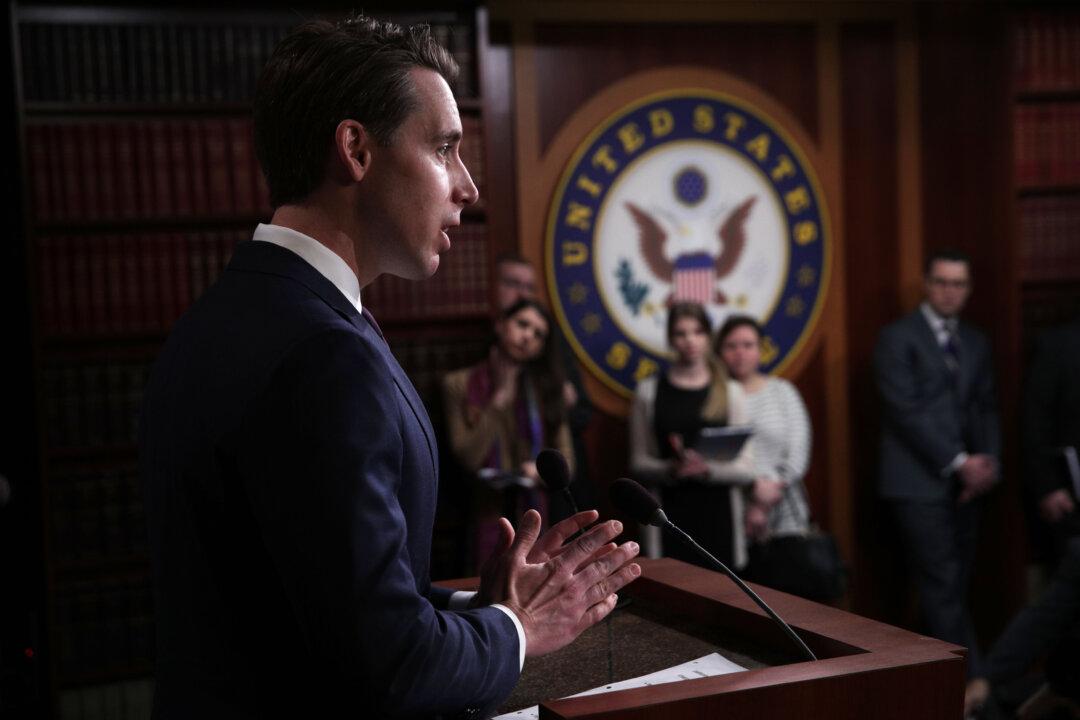Sen. Josh Hawley (R-Mo.) on June 18 introduced legislation aimed at protecting sensitive national security-related academic research from theft by foreign intelligence services from countries such as China, Russia, and Iran.
The legislation titled the “Protect Our Universities Act of 2019“ was introduced in the Senate and will also be submitted as a Senate amendment to the FY 2020 National Defense Authorization Act which is presently going through markups in the House and Senate.





